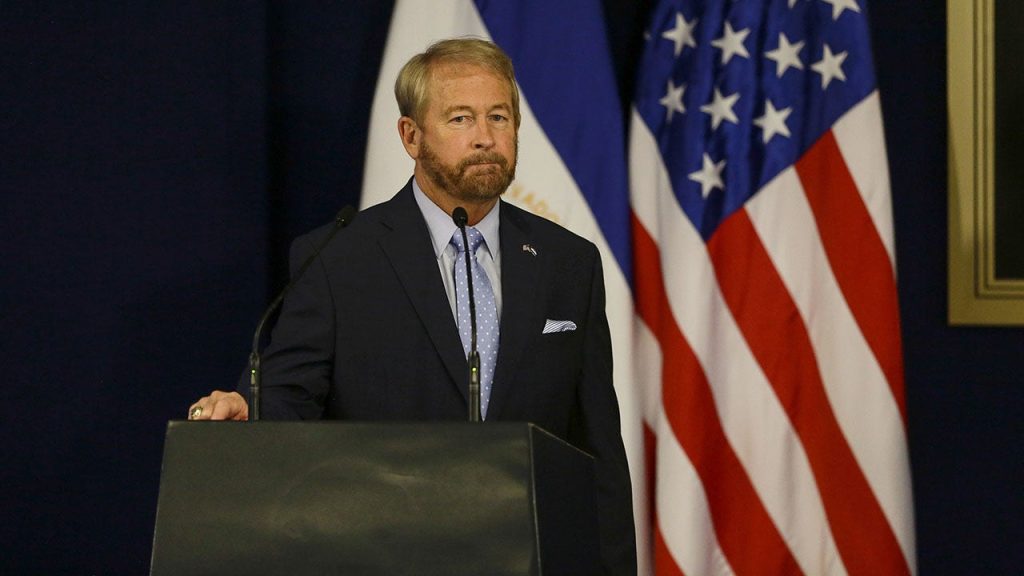Ronald Johnson, a seasoned diplomat and former CIA official, has been nominated by President-elect Donald Trump to serve as the United States Ambassador to Mexico. This crucial appointment underscores the importance Trump places on the U.S.-Mexico relationship, particularly concerning border security, trade, and the fight against drug trafficking. Johnson’s prior experience as Ambassador to El Salvador, where he focused on reducing violent crime and illegal migration, positions him as a key player in advancing Trump’s “America First” foreign policy agenda in the region. The nomination signals a potential return to the assertive and at times contentious approach that characterized Trump’s first term regarding U.S. relations with Mexico.
Trump’s selection of Johnson, a former U.S. Army Green Beret, highlights the emphasis on security and law enforcement in his approach to the bilateral relationship. The President-elect lauded Johnson’s previous work in El Salvador, claiming he achieved historic lows in violent crime and illegal migration. This suggests a focus on similar objectives in Mexico, with the expectation that Johnson will collaborate closely with Mexican authorities to address these issues. The nomination also signals Trump’s intention to leverage the ambassadorship to advance his broader immigration and border security priorities, potentially including the construction of a border wall and increased enforcement measures.
The announcement of Johnson’s nomination comes amidst renewed discussions of tariffs on Mexican goods. Trump has repeatedly threatened to impose such tariffs as a means of pressuring Mexico to take more stringent action against illegal immigration and drug trafficking. This tactic, a hallmark of Trump’s trade policy, raises concerns about potential economic repercussions and the stability of the bilateral relationship. Johnson’s role will likely involve navigating these complex trade dynamics while simultaneously working to maintain open channels of communication with the Mexican government.
Johnson’s anticipated partnership with Secretary of State nominee Marco Rubio further emphasizes the administration’s focus on Latin America and the Caribbean. This collaboration could signal a more coordinated and assertive U.S. foreign policy in the region, with a focus on addressing issues such as migration, drug trafficking, and economic development. Given Rubio’s Cuban-American heritage and his longstanding interest in Latin American affairs, this partnership could also signify a renewed emphasis on promoting democracy and human rights in the region.
The nomination of Ronald Johnson is a significant indicator of the direction of U.S.-Mexico relations under a second Trump administration. His background in intelligence and law enforcement, coupled with his experience in El Salvador, suggests a focus on security and border control. The potential reintroduction of tariffs and the emphasis on “America First” policies could lead to periods of tension and negotiation between the two countries. Johnson’s diplomatic skills and his ability to navigate complex political landscapes will be crucial in managing this important bilateral relationship.
The challenges facing Johnson as Ambassador to Mexico are considerable. He must balance the often conflicting priorities of security, trade, and diplomacy while navigating the complexities of a relationship characterized by both cooperation and contention. His success will depend on his ability to build strong working relationships with Mexican officials, effectively communicate U.S. interests, and find common ground on critical issues. The U.S.-Mexico relationship is multifaceted and crucial to both countries, and Johnson’s role will be pivotal in shaping its future trajectory.















